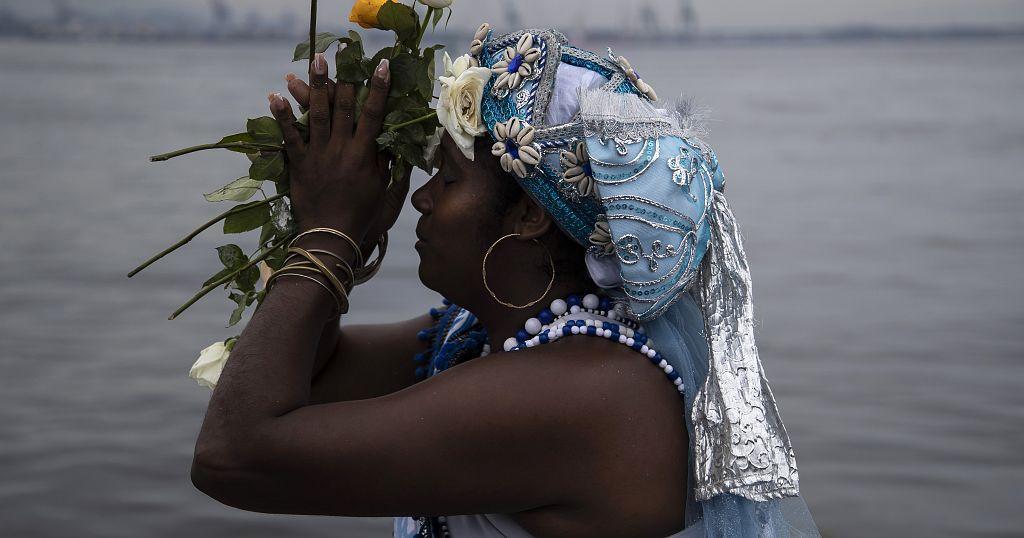Africa-Press – Gambia. https://www.youtube.com/watch?v=VAWfMOsc69g
Devotees of the sea deity Yemajá assembled at Copacabana beach in Rio de Janeiro, to pay homage to their goddess.
Yemanjá, meaning the Great Mother of the Sea is praised in a series of African hybridized diasporic religious forms in Brazil.
Afro-Brazilian Candomble and Umbanda traditions are some of these.
The interweaving of cultures that form these religions is tied to Portuguese colonial history and all the diverse diasporic cultures of West and Central Africa nations whose inhabitants were forcibly relocated to Brazil during the colonial era; and finally, to numerous Indigenous American beliefs.
“We bring the gifts today in thanks to everything that has happened to us, and now for 2024 we ask for health, prosperity, everything, everything you can ask for,” Helio Sillman, the organizer of the Yemanjá Festival said.
“Yemanjá, she’s there listening, she’s there listening. ”
Singing, drumming, and dancing gave rhythm to the customary New Year tribute which gathered crowds on December 29.
The worshippers also left offerings to the goddess on the sands of Copacabana Beach.
Some we simply offered their gratitude and prayers.
“I’m here to thank that we have peace, good health, a good New Year’s Eve, that there’s harmony and that people understand that we’re here to cultivate happiness, harmony and peace, on a day like today and for the whole year to come,” worshipper Valter said.
Dressed predominantly in white, several worshipers sent their offerings into the sea.
Small boats were laden with flowers and bowls containing candles, fruits, perfume, and beverages.
Of the 10.5 million Africans who were abducted and forcibly exploited as slaves between the early 16th century and 19th century, over a third disembarked in Brazil according to the Transatlantic slave trade data base.
For More News And Analysis About Gambia Follow Africa-Press






